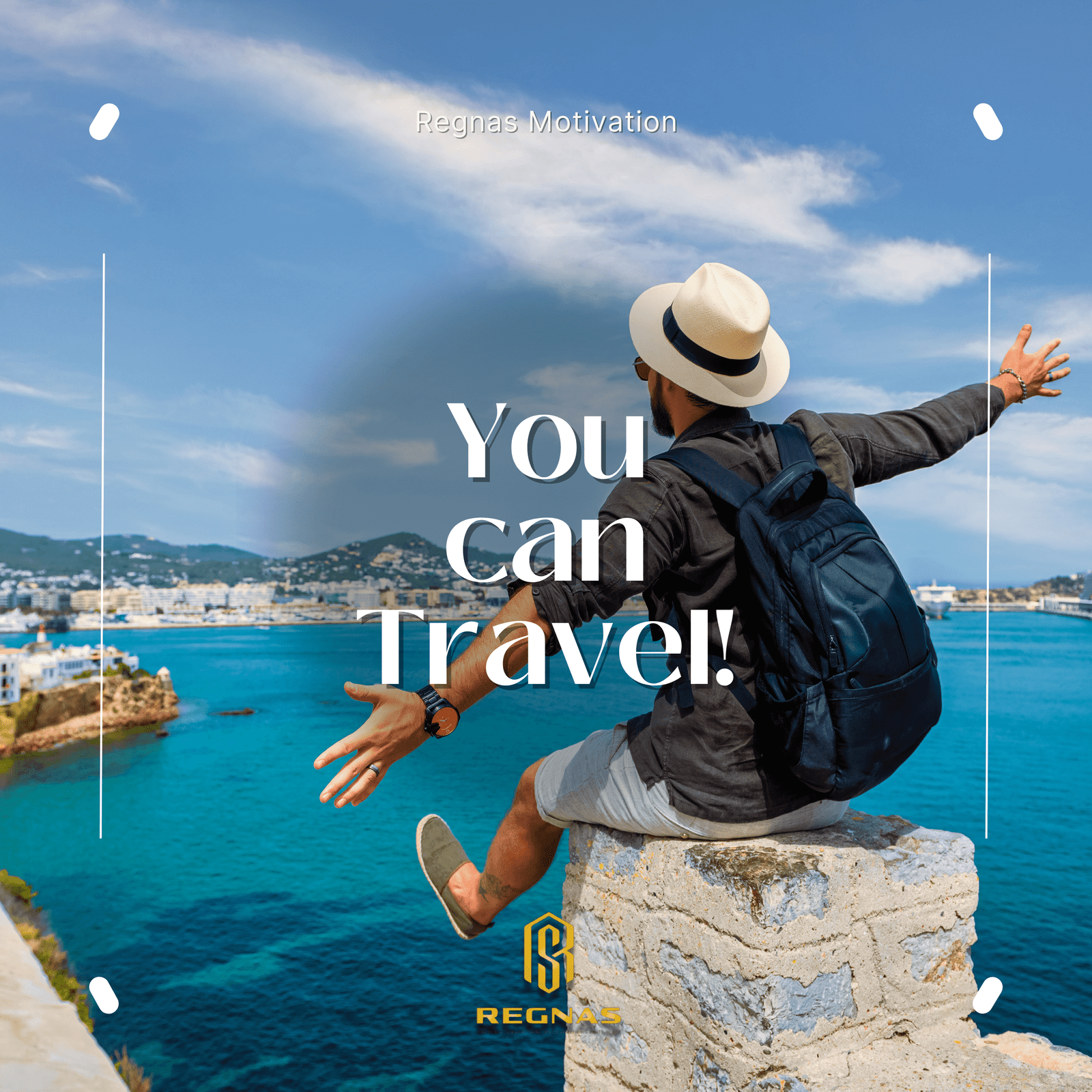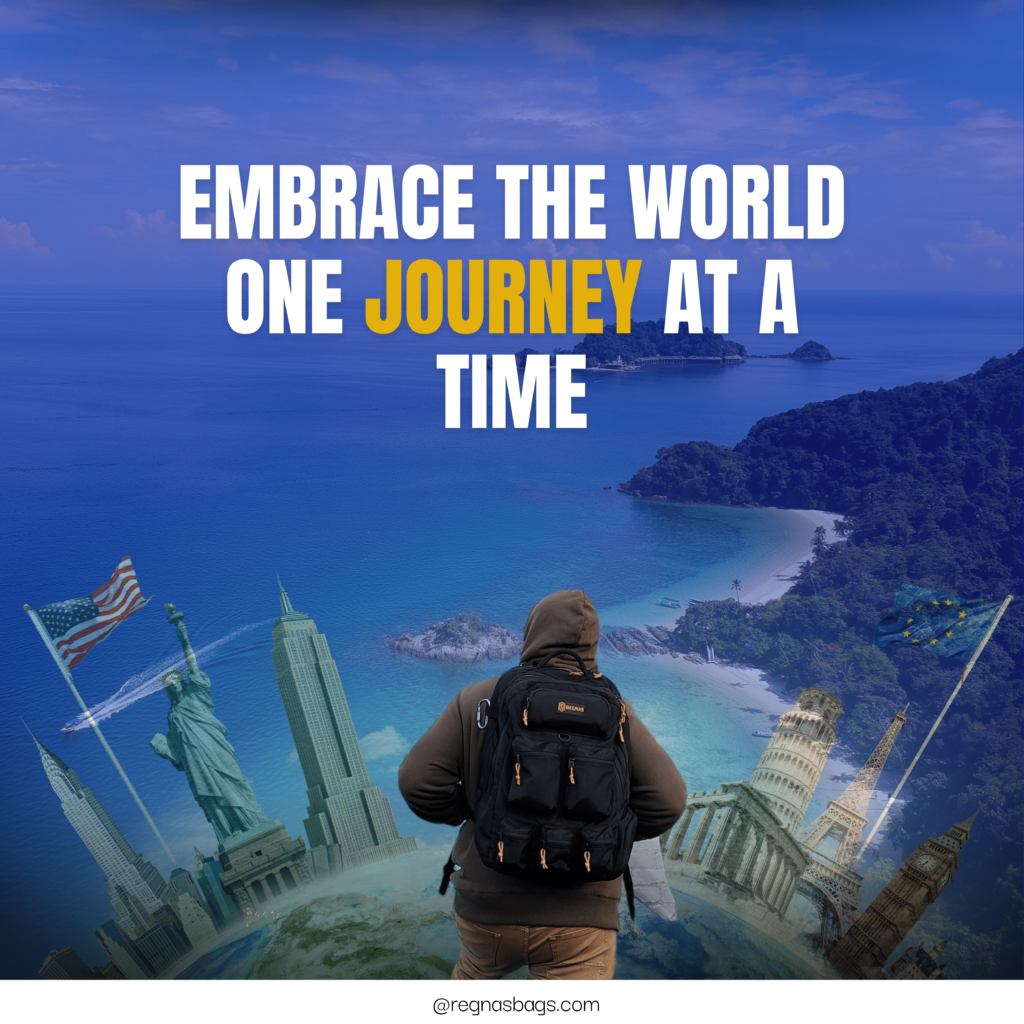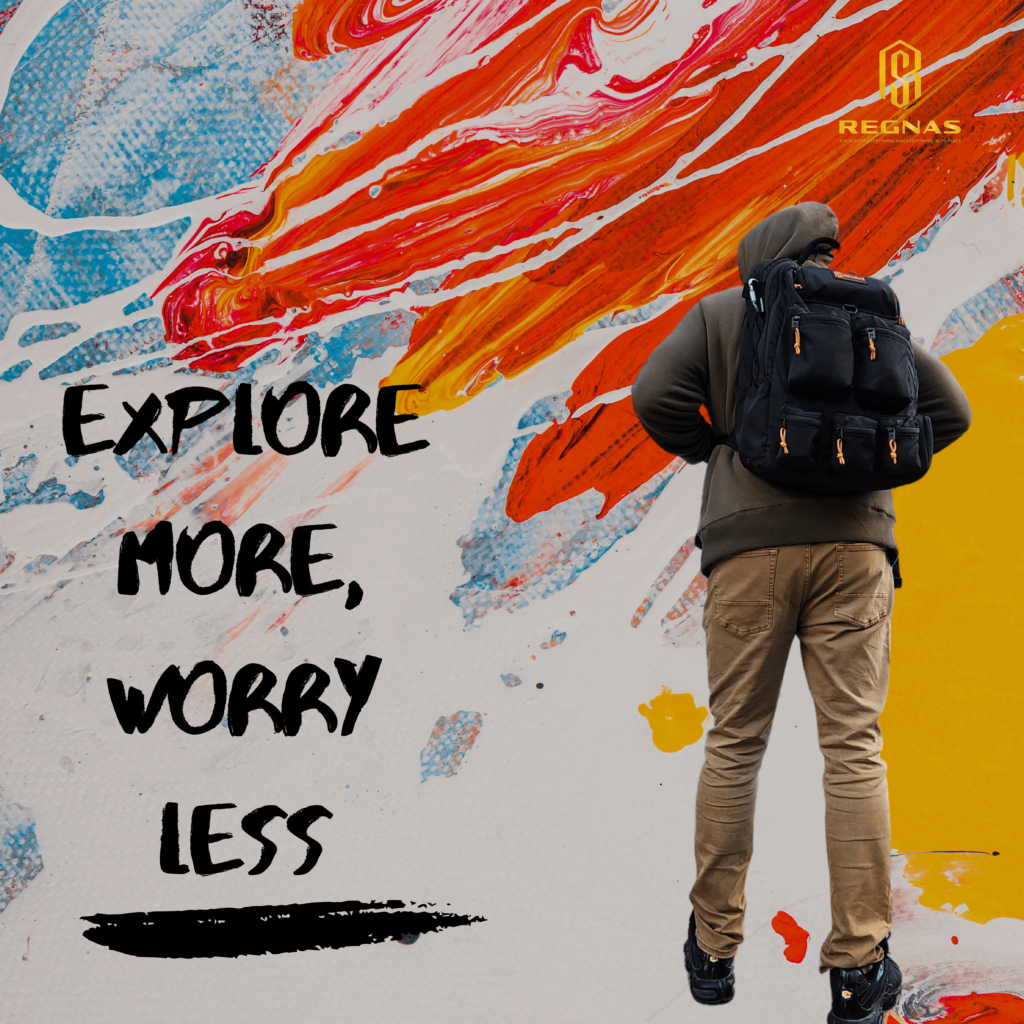FREE SHIPPING to US $150+ / Simple Returns & Exchanges
Explore The World
Traveling alone is more than just a trip, it’s a path to self-discovery and independence. Stepping out into the world solo can feel intimidating, but it’s an experience that leaves you more empowered and resilient. For those considering solo travel but feeling hesitant, this guide is all about helping you build the courage and confidence to dive in and make the most of your journey.
Here’s how to turn solo travel into a powerful, memorable, and rewarding experience.

Mastering the Art of Solo Travel: Building Courage & Confidence

Larry Sanger
Don’t let your past years be your best years, better life now, best life coming. Explore the world. Learn everyday. Happy travels!
Planning your next trip?
1. Understanding and Embracing Your Fears
It’s natural to feel uneasy about traveling alone. Many people worry about being lonely, staying safe, or just handling the unknown on their own. Instead of trying to push away these worries, take a moment to face them honestly. Recognizing your fears can make them more manageable and help you grow into a braver traveler.
Identify What Makes You Anxious: Write down the specific fears that come up. Maybe you’re worried about navigating alone, interacting with strangers, or managing in a language you don’t know. Once you know what specifically concerns you, it’s easier to find solutions that make you feel prepared.
Challenge Your Assumptions: Sometimes our worries are based more on “what ifs” than actual risks. Think about your fears rationally, many of them are more manageable than they initially seem. For instance, getting lost in a new city is less frightening when you remember you can always ask for help or use a map app.
Take Practice Runs: Start small. Maybe take a day trip to a nearby town, or try dining alone at a restaurant you’ve never been to. These experiences can ease you into the feeling of exploring alone and help you build confidence for a bigger trip.
2. Preparing Your Journey with Confidence
For many first-time solo travelers, preparation is key to feeling secure and comfortable. While spontaneity is a wonderful part of traveling, a bit of planning beforehand can work wonders in making you feel grounded and confident as you begin your journey.
Choose a Solo-Friendly Destination: Some destinations are known for being welcoming to solo travelers. Countries like Japan, the Netherlands, and Costa Rica have reputations for being safe, easy to navigate, and full of friendly locals. Start with a place that has good transportation, helpful locals, and perhaps even a language you’re somewhat familiar with.
Create a Simple, Flexible Itinerary: Don’t feel pressured to plan every hour of every day. Instead, outline a few key things you’d love to do each day. A loose itinerary gives you structure without the pressure of a strict schedule. Plus, it leaves room for spontaneous discoveries, like a hidden café or an art gallery you stumble upon.
Learn Basic Local Phrases: Knowing a few words in the local language can make a big difference in how comfortable you feel. Even simple phrases like “hello,” “thank you,” and “help, please” can open doors and make interactions friendlier. Locals appreciate the effort, and it often leads to more welcoming encounters.
Set Up Safety Nets: Feeling safe gives you freedom. Make sure you have copies of important documents, like your passport and ID, both on paper and stored digitally. Write down emergency contacts and save the address of your accommodation on your phone. Knowing you have a backup plan can ease your mind and help you relax.

3. Building Practical Travel Skills
Beyond having a plan, having a few practical travel skills can do wonders for your confidence. These abilities can turn challenging situations into manageable ones and make solo travel feel less intimidating.
Understand Local Customs: Knowing a bit about local culture helps you feel less like an outsider. Researching customs, like appropriate greetings or dining etiquette, can make you more comfortable in social settings. Plus, locals often appreciate when visitors show respect for their culture.
Master Navigation Basics: Even in the age of GPS, it’s helpful to know how to read a map, use public transit, and navigate unfamiliar neighborhoods. Before you go, try getting comfortable with local maps, transit routes, and apps like Google Maps or Citymapper. Being able to find your way around will make you feel much more capable.
Pack Light but Smart: Solo travel is much easier when you’re not weighed down by bulky luggage. Pack versatile clothing, essentials like a portable charger, and any items that give you peace of mind, like a small first-aid kit. A well-organized, lightweight bag keeps you mobile and ready for anything.
Stay Aware and Trust Your Instincts: Safety is important, but it doesn’t have to be complicated. Trusting your gut can often tell you when a situation doesn’t feel right. Take simple precautions like sharing your location with a friend or family member, keeping your belongings close, and sticking to well-lit areas at night.
4. Embracing Connections and Building Community
One of the myths of solo travel is that you’ll be lonely the whole time, but many solo travelers find they connect more with others because they’re on their own. Traveling solo opens up all kinds of opportunities to meet new people and have experiences you might not have in a group.
Stay in Social Accommodations: Hostels, guesthouses, and even some Airbnbs are naturally social environments where people gather and chat. Many hostels organize outings or group activities, and it’s common to meet other solo travelers who are open to meeting new people.
Join Group Tours or Classes: Day tours, cooking classes, or local excursions are perfect for solo travelers looking to meet others. These activities let you connect with people who share your interests, and since the setting is temporary, there’s no pressure if you prefer to go your own way afterward.
Engage Locals in Small Ways: Whether you’re asking for directions, trying a street food stall, or shopping at a local market, small exchanges with locals can turn into memorable interactions. A smile and a respectful question go a long way toward opening doors and learning more about the culture.
Use Travel Apps to Meet Others: Platforms like Meetup, Couchsurfing, or even travel Facebook groups often organize events where solo travelers and locals can connect. From language exchanges to community dinners, these meetups are designed to bring people together in a safe, fun way.
5. Learning from Each Experience and Growing with Confidence
Solo travel is full of moments that make you a little braver and a little more resilient. Each experience good or challenging, is an opportunity to grow, and as you collect these moments, your confidence builds naturally.
Celebrate Each Win: Solo travel is full of small victories, from successfully navigating a new city to trying a local dish you’d never heard of. Acknowledge each of these accomplishments because they show how capable you are.
See Challenges as Learning Moments: If you get lost, miss a train, or struggle with language barriers, view these moments as opportunities to problem-solve and grow. Each time you tackle a travel challenge, you add to your ability to handle things calmly and creatively.
Document Your Journey: Journaling or keeping a photo diary is a wonderful way to reflect on your solo trip. Recording your experiences allows you to look back, see how far you’ve come, and remember the things that made your journey special.
Make Time for Rest and Reflection: Solo travel can be exhilarating, but it can also be mentally and physically demanding. Give yourself time to recharge, whether it’s a quiet afternoon in a park, an evening with a good book, or even a day dedicated to self-care.

6. Returning Home Changed by the Journey
When you return from your solo adventure, you’re often not the same person who left. You’re likely to have a new sense of independence, a broader perspective, and a deeper understanding of your own strength. Here’s how to bring that transformation into your daily life:
Apply What You’ve Learned: Take the skills and confidence you’ve gained through solo travel and apply them in other areas of life. The resilience, patience, and problem-solving abilities you developed on the road can help you face challenges at work, in relationships, or in other parts of your life.
Set New Personal Goals: Solo travel can be incredibly inspiring. Use that momentum to set new goals, whether it’s learning a new language, planning another trip, or pursuing a passion you’ve put on hold. Your adventure has shown you what you’re capable of, so let it fuel your next big dream.
Share Your Story with Others: Many people dream of solo travel but feel hesitant to take the leap. Sharing your experiences—whether through a blog, social media, or simply chatting with friends—can inspire others and reinforce the growth you’ve experienced.

